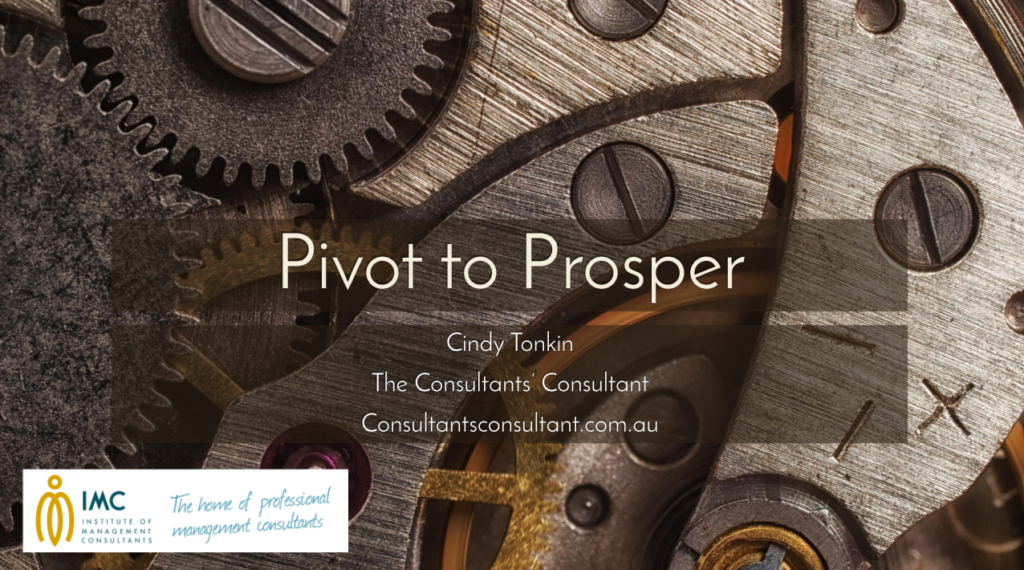

Glen Bell is the former president of the Data Management Association in Sydney, Australia. Here is his linked in profile. He has been working in Data Management for several decades.
Glen and I met improvising together more than 15 years ago. Here are some of the things he talks about:
- Data School: a new idea for educating data people so that they are equipped to work in the decision sciences
- Most important thing with data analysis is that people make decisions and take action from it
- 70% of data analysis is data cleansing and prep. But if you can’t count then you’re out of the game
- Glen believes pie charts are evil: see his Ignite talk below
- Pecha kucha, Ignite Sydney and the Pyramid principle (Situation complication question answer)
- The essential nature of curiosity for data people: If you’re not a curious person in data you’ll be miserable!
- How important it is to be easy to work with
- Most expensive thing you can do in an organisation is to call a meeting
- The importance of first impressions
- No one as a child says “When I grow up I want to be a consultant”
- It’s more than just being able to do predictive analytics. you need to get the client’s attention for long enough to get context, and everyone else wants their attention too: you need to find a compelling reason for the client to fit you into their day
- Machine learning and data catalogues, Alation as part of the new wave of data cataloguing tools
- Glen’s analogy for data cataloguing
Things we mentioned!
Glen’s favourite charity is Meals on wheels
I refer to Shailendra Kumar’s podcast which you will find here.
Zombies run! an app for people who like a narrative in their run!
Visualisations and explanations
Edward Tufte’s book Visual explanations. And the infographic of Napoleon’s army marching on Russia here.
Here’s some info on John Snow epidemiologist who mapped visits to public water fountains. Here’s that image.
Stephen Few Show me the numbers
Professional Development
Glen reads the Economist magazine
James Clear’s newsletter and the book, Atomic Habits
Yuval Noah Harare’s book Sapiens, also recommended by Keegan O’Shea.
Alan Alda’s improv for scientists to help them communicate. And here is the podcast, which is called Clear + Vivid.
TV and shows
Glen’s brother, Trevor’s podcast.
Glen Bell Transcript.
Cindy Tonkin: Today I have Glen Bell with me.
Glen and I have known each other for 15 years. We used to improvise together and we still do, sometimes not even on a stage. Glen has been in data from a very long time. You’re the head of the Data Management Association. Tell me about DAMA.
Glen Bell: DAMA is a not-for-profit professional association. If you’re interested in data, you should come to DAMA. There’s monthly meetings in Sydney except for January. It’s great for networking, very educational and DAMA also has what’s known as the data management body of knowledge DMBOK which you could you to buy off Amazon, and there’s a certification program called the Certified Data Management Professionalist CDMP.
Cindy Tonkin: Glen is also involved in data school, he was just telling me something about and I thought we could start with that. Tell me about data school.

What is Data School?
Glen Bell: Data School comes from the United Kingdom and it’s a wonderful program for getting into the data industry. So imagine you wanted to become a data analyst. Most people would think, well, I’ve done my undergraduate degree and I’ll go back to Uni and do a postgraduate qualification. Which is fine. But the disadvantage of that is that typically there’ll be incurring fees for the course and you’re not earning anything while you’re doing the course. If you’re doing it on a full-time basis.
At the Data School you become an employee of the data school. In the first four months you go through intensive training on the Tableau and Alteryx products by some of the best people in Australia in that product set.
Cindy Tonkin: Including yourself, I believe.
Glen Bell: Not for the product set. But for non-product specific stuff on data modeling and consulting skills. So, you would do four months intensive and then two years of six monthly placements at major corporations around Australia. Then at the end of that two year period you’re free to do whatever you wish. You’ve been getting paid during this period and you’ve been getting real world experience that you wouldn’t get at Uni. I just think it’s a wonderful opportunity.
Cindy Tonkin: Are there any grads from this program here yet?
Glen Bell: Yes. The first cohort has gone through and they will be placed on six month assignments in leading telecommunications and banking organizations.

Who wants to be a data analyst?
Cindy Tonkin: Is it different ages of people? Is it just 20-somethings or are these people also people re-skilling who may have other quals?
Glen Bell: It can be both. Even in cohort one, there were some people who had worked for a period of time. They did psychology and they really enjoyed doing the stats component, but then when they were working as a psychologist and listening to people’s problems, it’s that classic thing where people have done an undergraduate qualification and done some work and then thought, I was really enjoying the database thing, I like to the focus on that.
Cindy Tonkin: One of the other podcasts guests, Shailendra Kumar was talking about, if you didn’t do stats at school, don’t think you can be a data analyst. You’ve got to know your stats backwards, because essentially it’s the same stuff. It’s kind of fundamental isn’t it?
Glen Bell: Yes. I might disagree a little bit. Certainly if you wish to be a data scientist and do things like predictive analytics, then of course you have to have a statistical background. But there are people who live rich and fulfilling lives in the data space who don’t have a statistical background. Especially when 70% of the effort involved in data analysis is typically extracting data from a source system, cleansing and consolidating it and then populating it into a target system.
There are people who live rich and fulfilling lives in the data space who don’t have a statistical background
I’ve seen organisations where there’s one group of people who do the data prep and then a lot of the group of people who could be actuaries or have some other statistical background, they were then doing the interpretation and analysis.
Cindy Tonkin: So is that difference between a data analyst and a data scientist?
Glen Bell: The data scientist certainly has to have core statistics. If you’re doing predictive stuff, then you’ve got to understand those techniques to be able to achieve that. Whereas a front of the middle data analyst can form analysis. A lot of questions in life are relatively simple, especially if we’re trying to work out what happened in the past. So if I’m running a government scheme, I want to know how many people have applied for the scheme. That really requires the ability to count. Obviously if you can’t count, then you’re out of the game.
Cindy Tonkin: Yes absolutely. But depending on the kind of analytics you want to work in, stats can be less important. And of course, as we both know, sometimes it’s more important that you can communicate about the answers that you find then that you can put together the complex numbers that make that answer happen.
… sometimes it’s more important that you can communicate about the answers that you find than that you can put together the complex numbers that make that answer happen.

Communication is key
You are a big Edward Tufte fan. Tell me about Edward Tufte as if I didn’t know.
Glen Bell: Ok. Tufte writes books in the area of how to visualize data. If you’re going to get a good Tufte book or borrow it from the library, there’s one called Visual Explanations which is very good. I liked the book so much. I named my company after it I was so impressed.
The books themselves are just beautiful books and there’s a wonderful map overlay with a representation of Napoleon’s army marching against Russia. You have this big stream of people coming in at the beginning and then when they retreat and return back to France, there is this is tiny trickle of people and it’s a very moving statistical analysis. It’s quite gripping.
Cindy Tonkin: So Tufte was kind of like the original infographic.
Glen Bell: Yes. Go back to, I think it was John Snow who was a doctor and epidemiologist who was looking at the spread of cholera in the community in England. By making markings on a map where the cholera deaths were, he was able to work out that it was a particular public water fountain that was the transmitter. They closed down that fountain and the cholera went away. That’s an example of spatial analysis. Often people think with spatial analysis you need to have heavy duty computing equipment. But no. You can do it with pen paper.
Cindy Tonkin: Just ask people and put dots on a map.

Visualising data
Glen Bell: Yes. Tufte is a great exponent of making people aware of how to represent that information digitally in a way that’s impactful and easy to understand. The other author that I really like is Stephen Few. He’s got a book called, Show Me The Numbers. I would say that’s a compulsory read if you work in that data right now.
Cindy Tonkin: I know that you have an association with Tableau at the moment who in effect do visualizations of data. How important do you think that is for people?
The most important thing is that people make decisions and perform actions. Otherwise the whole exercise is pointless.
Glen Bell: Let me just take a step back and say, what is the most important thing when we’re looking at data analysis? The most important thing is that people make decisions and perform actions. Otherwise the whole exercise is pointless. I can use a beautiful product, like Tableau, and create a great visualization of the data. If that doesn’t drive any decision-making and any actions that cause a change to occur, then it’s really not very important at all.
We want to begin with the problem and then work backwards to how best to visualize the data so that we can make sense of the data to answer the problem, to make a decision, to cause an outcome. I’m with a company called MIP and three of their products are in the space of preparing data. A product called Alteryx and another called WhereScape. Then the visualization is around the Tableau product.
Cindy Tonkin: Essentially, no matter how pretty it is, if actions are taken, if people don’t understand what it means and therefore take action. Which leads me to another one of your specialties. You hate pie charts.

Effective tools
Glen Bell: I hate pie charts. If you speak to people in the science community, when you look at scientific journals, nobody uses pie charts. But this menace erupted in the media and in busines.
The problem with pie charts is that human beings are very bad at telling the difference between different angles. So with slices into the pie, you’ve got to be able to tell that this angle here is bigger, and that’s pretty much impossible.
The other thing is that there’s no axis to helpful comparison. I have a presentation; it’s called Pie charts are evil on YouTube. It has some examples where you just look at a pie chart of A is bigger than B and you flip it into a bar chart. And it’s quite clear and easy. People can become a bit obsessed with eye candy. If you’re attempt with the pie chart as to stimulate excitement in that person’s brain, then go ahead and use pretty colors and all that stuff.
To explain information for analysis purposes, then pie charts are terrible and evil. I’m shocked when I read an annual report for some of Australia’s major companies and they’ll even have those doughnut pie charts where the middle is missing. It is impossible to doing anything of value. Its crazy.
I’d like to come back to a point we made earlier about communication, and to your question, What sort of things do you look for when hiring?

Articulating clear thinking
the effectiveness of your written oral communication is not so much the words that you’re using… it is articulating that clear thinking
To me the critical thing is to be able to communicate. If we take the data school example, apart from learning Tableau and Alteryx, they also do presentations each week. Clients come in on Monday and provide a data session or problem and then come back on the Friday for the students to present.
So students learn the techniques of presentation and crafting a story based on the data, rather than just showing a table of numbers and not engaging and winning people over.
Communication, both written and oral is key. And if English is your second language, don’t despair because the effectiveness of your written oral communication is not so much the words that you’re using in that you have previously done clear thinking. And then what you’re doing with your writing in the speaking is articulating that clear thinking. So it doesn’t matter if you’re beautiful essay writer if you haven’t the clear thinking behind it.
Cindy Tonkin: Exactly. That’s one of the reasons I love the Ignite format. Because it says you’ve got five minutes and 20 twenty slides. When you see Glen’s Pie charts are evil, it’s an ignite talk, which Steven Lead runs in Sydney a couple of times a year. It’s a five minutes. You have 20 slides. Each one advances after 15 seconds.
Basically, you have to think so clearly that you can distill your message down to something that can be said in five minutes and 20 slides. It’s a beautiful way to think. Even if later you do a three day thing, having a five minute to go “this is the essential of what it is” makes a huge difference with that clear thinking. Do they do ignite style stuff at data school?

Using constraints to release creativity
Glen Bell: We don’t do it at data school, but I do invite them along at DAMA, the data management association dama.org.au. Once a year we have an ignite night, all night and I get them to come along to that and see what it’s like. We have gone in slightly off topic here, but Cindy you and I have both done improvisation as you said earlier, and one of the powers of improvisation is that it put constraints around you and those constraints then release creativity. The format of Ignite does that.
Cindy Tonkin: Yes. Exactly for that. All artists use constraints. Sometimes it is I’m only going to use black. It’s the same in Improv. In terms of explanation and complex explanations, are there any models or ideas that you fall back on when you want to explain complex stuff?
Glen Bell: There’s a book called the Pyramid Principle by Barbara Minto.
Cindy tonkin: Liz Moore also mentioned the Pyramid principle. Yes.
Glen Bell: I find it very effective for most forms of writing in that it forces constraints upon you about the structure of the story. The structure that it has is that firstly you’d have to describe the current situation.
Then you have to say what is the complication? If we’re currently going fine as a business, we’re profitable on that, then that’s not a story to tell. But if something happens, the price of our materials goes up or some other thing, then we have a complication that we have to do something about.
And that evokes the question, what are we going to do about it? And that question is critical.

What are we going to do about that?
If a computer system goes down, what am I going to do about that? Do I want it to be available 24 / 7? Or do I want to have good access to backup support within an hour? The types of questions that you want to answer, then drive the fourth component, which is the answer.
So, there’s the situation, the complication, the question, and then the answer. That structure I find very, very useful.
My colleagues around me, I encourage them to use it. If they give me a document to review I’ll say S C Q A to them, which is short hand for situation, complication, question, answer. And they’ll say “Oh yeah, I should have thought like that. I’ll come back”. Frameworks like that I find very useful.
Cindy Tonkin: Absolutely, and it makes it consistent so that you can actually find your way in a document. To some extent we are training clients by presenting in a similar way. The clients are starting to think in those terms. One of the things that a lot of my data analysts and data scientist friends and clients say is that often the client will say, “I want this solution”. But we don’t know what your problem is and does that solution actually answer that question? We don’t know.
Glen Bell: So it prompts the question, why do you want that solution? If you’ve been in business for 10 years without this solution. What’s happened to make you think you need this thing?
Cindy Tonkin: Exactly. Why do you need a concierge now? Why do you need this particular data trigger set up? Yes, we love models. We totally love models.
CIndy Tonkin: We talked a bit about recruitment. Let’s talk about recruitment and what makes a better or worse data person in your world?
Glen Bell: I’m just putting aside technical skills because I’m going to have that as the price of entry. Curiosity is critical. If you’re not a curious person, then you probably shouldn’t get into the data space because you’re just going to be miserable. You have got to look at a set of data and try and tease out, What is this data telling me? To put the effort in to engage with the data, to immerse yourself into it is going to be a real struggle if you’re not curious. It would be a living hell.
Curiosity is critical. If you’re not a curious person, then you probably shouldn’t get into the data space because you’re just going to be miserable.
For many people, sifting through data is one of the worst nightmares. They may be much better at working with people. I would be a terrible nurse for example. I don’t want to generalise about what nurses are like but I’ve got a sneaky feeling that many of them would not like to be a data person. We have to work towards our strengths.
I look for good communication, written and oral, and curiosity. That evokes things like empathy in working with the client, a cultural fit, and you have to be easy to work with. Especially in the firms that I work with we’re a consultant and you have to build a rapport with your clients and an understanding of them.
Cindy Tonkin: And your job depends on that rapport because they can just go somewhere else.
Glen Bell: That’s right. So you can be terribly clever. But if all you do is demonstrate your cleverness to me that can be quite off-putting. There is a whole range of soft skills that are necessary to be effective.
Cindy Tonkin: You’ve recruited data people in the past. What kinds of things do you do in terms of recruitment processes or questions you ask? Or do you have a particular method that you like to use? Do you have a four quadrant model with some kind of acronym?
Glen Bell: I mentioned the Data School earlier. When you make an application you have to submit a piece of work that’s been developed in Tableau. If it’s good, then you get into the interview and they’ll give you a set of data and you have to do some analysis on spot. I quite like that, just to confirm the person’s technical skills. So earlier I said that technical skills were price for entry.
Cindy Tonkin: But that doesn’t mean you don’t test them. And they’re easier to test than whether you’re easy to work with. Lots of people can give a good interview, but not be easy to work with.
Glen Bell: Yes. I try to have open-ended questions and understand what they’ve done before in their previous jobs. Examples of what you’ve done and why it was good. Tell me something that you did that wasn’t so good and why you changed it based on what you’ve learned from that experience? People who are out there doing things and making a difference, rather than sleep-walking through life. The Sydney CBD is filled with offices where people are just acting in a mindless way, without a lot of commitment to their task.
Cindy Tonkin: Talk to me about your ways of working smarter and your daily routines.
Glen Bell: A couple of things that I’ve been doing in recent years. I’ve been going regularly to the gym, almost on a daily basis. I feel healthier for it and I sleep better. I always try and get eight hours sleep, and as much as possible eat well.
Cindy Tonkin: What does eating well mean for Glen Bell?
Glen Bell: I quite like Sushi. Quite a safe option. Plenty of fruit and vegetables. The exercising component I find helps me.
Cindy Tonkin: What kind of exercise appeals to you?
Glen Bell: I go to a gym that has a spin room . On the ceiling of the room they have a thousand lights that change colors and flash according to the music, and that’s quite enjoyable.
Cindy Tonkin: So a spin class, I have heard about it, but I don’t know what it is.
Glen Bell: It’s a room full of exercise bikes and there’s an instructor up on the podium. They play music and the instructors will say, increase the resistance, get it up to 90 revolutions per minute. You have a thing that tells you how quickly you’re going. Okay, get out of the chair, increase resistance, we’re now going to the top of the hill.
Cindy Tonkin: Ok. So there is kind of a story?
Glen Bell: There can be a story to it. They try and get you to visualize, for example now you’re getting into the top of the hill, and make it interesting.
Cindy Tonkin: Okay. My friend told me about a download where you’re running away from zombies. It literally is a story to run to. It’s 30 minutes or whatever of running. It might say, okay, you’re out of trouble now take it easy. Then, Oh, here they come hurry up, run fast, run fast! Basically having some kind of narrative to your run or, in this case, stationary bike ride.

How to stay informed
So that’s one of your big routines. What do you do in terms of brain health? How do you keep yourself informed, interested? How do you learn new stuff?
Glen Bell: I read a lot. I subscribe to The Economist magazine, which is very informative. I get on the phone and read it, and that’s very convenient and then I just follow areas of interests that pop up. So I’ve mentioned James Clear‘s blogs. I also purchased his book. So there’s all sorts of things. Yuval Noah Harari who wrote 21 lessons for the 21st century has also written other books and articles. I look at the broad trends in history and find those types of writing to be very stimulating and creating awareness. I’m just following basic trends and what’s good.
Cindy Tonkin: Do you have a podcast you listen to?
Glen Bell: Not my thing yet. But I will be listening to this one.
My brother has a podcast. He is arguing against privileges that religion get in Australian society. I listened to one, but I went for an hour and a half, and they all go for an hour and a half. I think it needs to be less.
Cindy Tonkin: I use the app on my phone, podcast addict because I’m a Samsung person. It was the first one that came up on Google play. I don’t know if it’s a good app, or not. But I have discovered that it has a playlist so you can literally queue this one and then this one and then this one. So when I get on the train in the morning or when I leave the house in the morning, I listen to wherever I’ve been up to.
This morning I listened to Katie Couric and Sheryl Sandberg talking about Sheryl Sandberg’s book, Option B, but it was in the podcast by Alan Alda. Alan Alda runs a podcast based on Improv, about how scientists can communicate more effectively using improv principles, and he interviews people. So that’s what I was listening to this morning and then it pushed straight into Shane Parrish’s podcasts where he’s interviewing an ex-nun, who’s now been in the world for the long, long time and has several children, as a parenting specialist.
I had five minutes of Katie Couric and Sheryl Sandberg because it was finishing. Then straight into the next one. It’s just one long continuous set of interesting information. If I’m bored I skip to the next one.
If I’m reading a book, I close the book at the place I’m at. I don’t go, “I have to finish this book before I get off the train”.
Although I do have friends who love musicals. I love musicals. And some of them tell me that they were listening to Hamilton the musical on the train and they literally did not get off because it was two songs left before the end. They were so drawn into the narrative of Hamilton that they just stayed on the train! I don’t know about that. Your phone is portable. Couldn’t you have just gotten off the train and continued to listen?
So, we talked about books. What about television, YouTube, is their stuff that you think of and use frequently? What’s your favourite TV show right now?
Glen Bell: My favourite show at the moment a new series of Star Trek. Star Trek Discovery on Netflix. The things I like on YouTube. Last night an interview with the CEO at Microsoft who I found to be quite fascinating. There’s lots of great TED Talks out there as well.
Cindy Tonkin: You’ve got a particular TED Talk in your brain that you recommend?
Glen Bell: There was one with a lady who was a brain specialist and then she had a stroke.

Lessons learned
Cindy Tonkin: Oh yes. And she brought the brain out on stage. Yes. I think you might’ve told me about that when Ted was just brand new on the Internet. That’s how old we are. It’s fabulous. I think she describes not being able to dial a telephone because she didn’t know what a number was.
Glen Bell: Yes she lost that cognitive ability to communicate even through her fingers. Then she had to relearn to get back to where she was.
Cindy Tonkin: And now she’s in research. She got her brain back. There’s some fabulous stuff on TED.
What about career lessons? I remember you telling me a story one of your bosses and told you. He was a surfer and when things in meetings got really tricky, he would imagine that he’d just been dumped by wave and he was down in the bottom of the ocean just waiting for the wave to go over. There must be some fabulous lessons you’ve learned because you’ve worked in a lot of places. You worked in ASIC, and you worked in Canada.
.. when things in meetings got really tricky, he would imagine that he’d just been dumped by wave and he was down in the bottom of the ocean just waiting for the wave to go over
Glen Bell: For a company called OneRail Canada. I worked at a large number of client’s sites. The sort of skills that come to mind are things like being well-organised and well prepared.
I find for many organizations the skills that seem so simple, such as setting up a meeting and making sure that there is an agenda, and minutes, escapes must people. This is a crime. The most expensive thing I can do in an organization is call a meeting.
The most expensive thing I can do in an organization is call a meeting.
If I call six people into a room for one hour, that’s six hours of productivity that’s lost to that organisation. So it has to be super-effective and with a clear purpose for why we’re doing this meeting, and everything needs to work. The video conferencing and that sort of thing needs to work. It generally doesn’t. I know that sounds like low level mechanical sorts of things, but because they’re not following through, the meetings don’t reach the full productive value.

The importance of first impressions
I’ll just give a couple of anecdotes here.
I was doing a workshop in a hospital and we were doing some information systems planning.
Normally I’d write out the invitation that says this is the purpose of the workshop, this is what we’re going to do, this is what will get produced. Then I pass that to the sponsor to then send out to the participants so that they know it’s being authorised by senior person and what’s going to happen.
For some reason I hadn’t gotten my invitation to the sponsor on time. Then he or she had proactively sent the invite out to the participants. I walked into the room, and I don’t know if you have experienced this very unpleasant thing, I could feel waves of hate. I thought, this is unusual.
Of course I had to confront it and say what’s wrong?
Cindy Tonkin: If it doesn’t come across in the microphone, Glen’s a very nice man. He’s a nice, polite, agreeable, helpful man. He’s got a really gentle persona. Whether it’s true or not, I don’t know. I’d have to ask Kathy that. You’re not usually someone who gets hostile.
Glen Bell: No. So I ask what happened and it turned out that the invitation was worded that today a consultant called Glen Bell is going to come along, and he’s going to tell you how to solve your problems.
Cindy Tonkin: How long did it take you to get the audience back on your side?

The consultant’s skill set
Glen Bell: For some people I don’t know if I ever recovered from the setup. That has strengthened my resolve to always try to make sure that I am the who writes the invite. I know these sound so trivial so low level, but when they’re not done properly..
It creates an unconscious bias and then … confirmation bias
Cindy Tonkin: It creates an unconscious bias and then there is confirmation bias. Like, I thought this guy was an asshole, here’s five reasons he probably is an asshole because look, he just said that word.
But if it had been the other way around. Like, it seems he is going to be helpful, and he’s got some information, he’s going to share it, and he cares what I think. Then it’s like, oh look, there it is, he’s asking those questions because he really likes us and wants to know what we’re doing.
Glen Bell: As a data person, but these comments are of general nature, I want to do everything, but when I’m meeting you for the first time to appear credible.
Cindy Tonkin: Correct, first impressions, first two seconds.
Glen Bell: Before I meet you the invitation that goes out. And the other thing being that I should look like a professional. I should keep myself groomed and at least on first glance, not do anything that is jarring to the person who thinks, is this person really the data analyst? They look like a clown. All of those basics of personal presentation and making sure that you’re dressed appropriately, your shoes polished.
All those sorts of things actually do count. That is one of one of the lessons that I impart at the Data School, if you come and be a student, we impart these types of skills. When they said, “what do you want to be when you grow up?” Nobody ever said, “I want to be a data analysts working for a consulting firm”. No one ever says “I want to be a consultant”. Yet often people become accidental consultants, and there’s a whole skill set around that.
I feel like I’m getting a little off-topic.

Patterns of professionalism
People become accidental consultants, and there’s a whole skill set around that
Cindy Tonkin: No, I think we’re all in the same ballpark, which is professionalism. The pattern of professionalism that means that people don’t doubt from the get-go.
Glen Bell: From the get-go. At the risk of sounding paranoid. If you are working as a consulting data analyst or data scientist, when you haven’t even arrived at the client site and there are people at the client side who hate you already. The reason for that is that they might have just got these new products, like Tableau, Alteryx, and there are internal people who are hoping to use those products and improve their resumes. But they are missing out because there’s a highly paid consultant that’s coming. Or, what they perceived to be a highly paid consultant.
Cindy Tonkin: Exactly. They don’t know how many days you don’t work in a year.
Glen Bell: Yes. So all of your other salary consultants, you are not getting the hourly rate. So just making sure that people are mindful of that. That it’s more than just being able to do predictive analytics. It’s also all these other forces that you have to deal with to eventually solve the data analysis problem.
Cindy Tonkin: Exactly. Even if you just consulted inside an organization like in a Telstra or a CommBank or a NAB or whoever, you’re still disrupting their daily routine at work. You’re often asking them to do more. You’re asking them to think about problems that they just wish would go away. You are opening up cans of worms with them.

The fight for atttention
People have many demands on their time and you’re another demand. You’ve got to make some compelling reason why they should be putting their attention to you.
Glen Bell: I call it the fight for attention. People have many demands on their time and you’re another demand. You’re competing with these other things. So you’ve got to make some compelling reason why they should be putting their attention to you rather than these other people who are there.
Cindy Tonkin: Of course if you don’t ask the right questions to get the context, you’re never going to be able to solve the problem properly. But if they don’t want to give you the time, to give you the context, you can’t solve the problem. It’s all knock-on effect, isn’t it?
Glen Bell: Yes. Which brings me back to my first thing about effective written and oral communications. If you can’t effectively make a case for why this person who’s got more demands than time, then you’re not going to be able to win their attention, to then allow you to take the next steps towards understanding the problem, and then identifying the data and that creative visualization, and making a decision, and making something change.
Cindy Tonkin: Exactly. Everything predicated upon that first thing. If you don’t do the first thing, everything else is harder to do.
Glen Bell: Everything else. Yes. It’s not impossible. But every time, especially in the initial stages, if you slip up then you make it very, very hard for yourself further down the track.

Favourite Charity
Cindy Tonkin: So favorite charity?
Glen Bell: Well I would say Meals on Wheels, that’s pretty good. My mother gets meals from Meals On Wheels. They’re just one of those organizations that has very clear mission and they execute well.
Cindy Tonkin: We’re coming up towards the end. So anything you want to talk about?
this newer wave of tools… enabling collaboration and natural language search and all these neat consumer features that people expect in a Google world… enabled to find data within the organization.
Glen Bell: Yes. I talked a little bit about the Data School. Something I’d like to share that’s a big trend at the moment has the product category and fancy name of machine learning and data catalogues. Now days you can’t have a conversation without mentioning artificial intelligence. But there is a set of products in this data cataloguing area, and inventory of your data assets.
There’s one product I’ve been dealing with called Alation. It’s like elation that with an A. There’s always been data cataloging tools in the past, but they’ve been clunky and difficult to use. And now this newer wave of tools in terms of enabling collaboration and natural language search and all these neat consumer features that people expect in a Google world and just expect to be able to type into Google’s search criteria and find stuff. It’s now been enabled to find data within the organization.
If I can end with an analogy and in terms of communicating data. I find analogies to be quite powerful.
Imagine I am preparing dinner tonight and I need some corn, I go to the supermarket, but all the tin cans are spread out over the floor in a haphazard fashion and when I’d pick up a tin, it doesn’t have a label on it. So I go to ask somebody, do you think this is corn?
I’m not sure. So I pull out a can opener, open the cap and it’s beetroot. So I keep opening the cans until I find some corn. Then I’ll take a sniff at it and I go, hmm, I wonder if this is okay. Do you want to sniff this? And I take it home and I hope I don’t poison my family.
You couldn’t govern your financial assets if you don’t have a set of bank accounts that you know about. So how can you govern your data assets if you don’t know what you’ve got?
Data in most organizations is like that. You can’t find what you need. It’s poorly described. Like the unlabeled cans you can’t understand it. You can’t trust it because the can didn’t have a use by date on it. And the usage of it is fraught. The fundamental thing is like all corporate assets. With financial assets, we want to govern them. But you couldn’t govern your financial assets if you don’t have a set of bank accounts that you know about. So how can you govern your data assets if you don’t know what you’ve got? The new wave of data cataloguing tools is really doing a good job of addressing that problem.
Cindy Tonkin: So the problem, the complication, the solution.
Glen Bell: Yes. The problem is I can’t find the data that I need. The complication is that the data keeps increasing. So the answer is a modern data catalogue.
Cindy Tonkin: Nice, and you love these new tools.
Cindy Tonkin: I think that one’s pretty swish.
Cindy Tonkin: Cool. I love it. Anything you want to say as a final word.
Glen Bell: That’s the final word.
Cindy Tonkin: That’s the final word. Okay. Let’s say it’s done then. Beautiful.
Cindy Tonkin: This is Cindy Tonkin. I’m the Consultants Consultant and you’ve been listening to Smarter Data People.
This is part of what I do to understand how it is that data scientists can be more effective in the workplace, smarter, faster and nicer. And if you have a team and you’re finding them harder to manage than they could be, if you’re constantly trying to squeeze more out of your budget and out of their time, and if you’ve got stakeholders or they’ve got stakeholders who are less than happy, sometimes maybe a lot more than some times, it can be really annoying and it can make you feel incompetent.
I can help you help them get to the important problems faster, target the wasted time and save you time and money, and ultimately delight stakeholders so that you can feel competent again. It’s such a good feeling. Talk to me.






